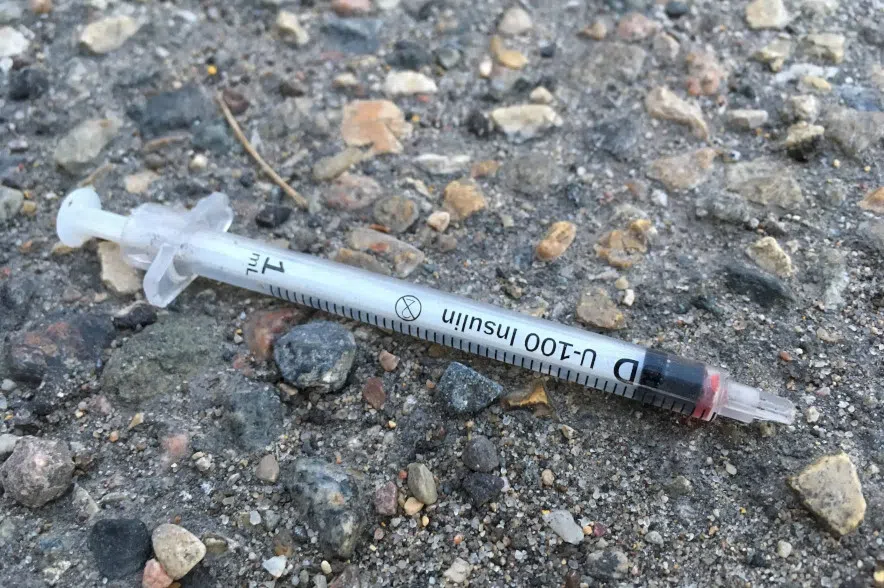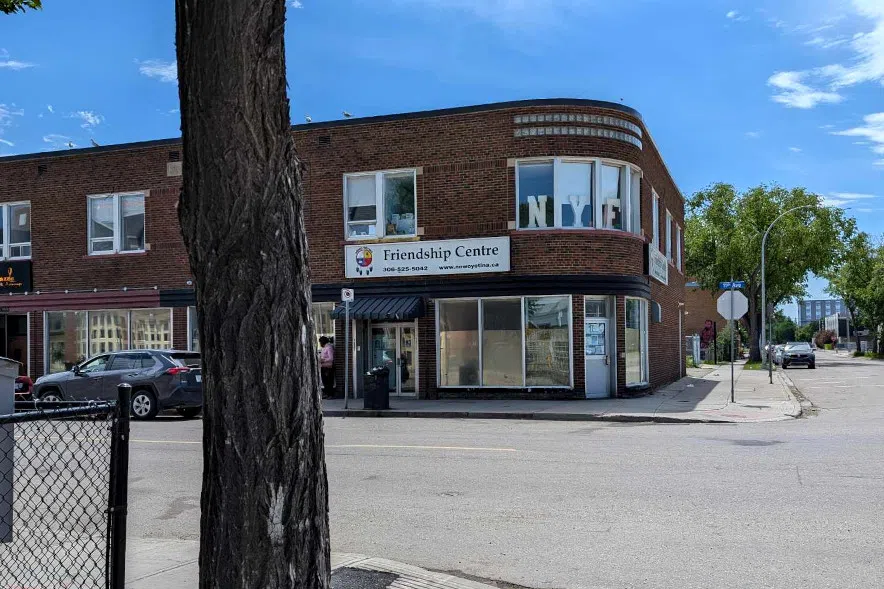It’s been six months since the Government of Saskatchewan decided to stop providing free, clean drug tools for users like pipes, but negative consequences are already being felt.
Fifty-eight-year-old Stewart Maley has lived in Regina for nearly three decades and is dealing with an opiate addiction.
“We were all surprised to find out they were cutting back on it. We thought he was kidding when he said the pipes were (being) taken back,” said Maley.
Maley said with people not being able to get pipes anymore, more and more are turning to needles to take their drugs.
“Injection is a scary thing, you gotta know what you’re doing,” said Maley.
In 2018, the provincial government began providing safe inhalation kits to the public to help stop the spread of HIV and hepatitis from intravenous drug use. According to the latest numbers, from 2022, Saskatchewan has, by far, the highest new HIV diagnosis rate among the provinces and is close to five times higher than the national rate.
Maley said he prefers to use a pipe for his drugs but he will use a needle every now and then.
“It was a hospital in Calgary that taught me direction and depth and they showed me what I was doing wrong. They showed me where to find some different veins, and they trained me quite a bit,” he said.
As more people turn to needles for their drugs, Maley said they’re asking him for help. He said needles can be dangerous if a person has never done it, especially if they’re injecting methamphetamine.
“If they don’t hit the vein and they still inject it, they’re at a risk of abscess, immediate infection and serious pain because, for a user to inject methamphetamine, they must have a direct hit, they must be in the vein,” explained Maley.
People like Emile Gariepy and his team at Regina’s only safe consumption site, Wâhkôhtowin Harm Reduction, try to help new users as well.
“We try to provide the sanitary way of using – use your swab, clean it up, use a tourniquet, here’s how you properly use a needle … to ensure we’re not creating abscesses or scarring or anything like that,” said Gariepy.
“It’s hard to educate people when they’ve never done it. It’s tough seeing new faces coming in that have only used pipes. Now pipes are so scarce around here they’re reverting to needles.”
Gariepy said he’s seeing violence around pipes now because they’re so scarce. Government is no longer providing pipes and organizations aren’t allowed to use provincial funding on pipes. However, Nēwo-Yōtina Friendship Centre has scraped together enough money to give out its own pipes two days a week.
“I’ve noticed that someone will come in and get a pipe and then the next thing you know someone walks off with their pipe and now there’s a fight broken out or somebody’s getting stabbed over it,” he said.
At the same time the provincial government cut the pipes program, it also changed the clean needle program to an exchange only, so someone has to bring a used needle in to get a new one back. But Gariepy explained, functionally, that’s taken away all the needles.
“The person who’s using needles, not all of them are in their home with a sharps bin putting away all their needles then going to get new needles,” said Gariepy.
“A lot of the people are on the streets and they use the needles either in the safe injection site or wherever it might be. They don’t have a stack of needles to bring back to an exchange to get needles back.”
He said that’s where the situation gets dangerous. People are then sharing needles and re-using the same dirty, dull needle over and over again.
“The sharpness of the needle goes away and now they’re causing major health problems. With the dull needle abscesses are going out the roof,” Gariepy explained.

Emile Gariepy says many who use IV drugs aren’t in a position to collect used ones, so they can’t use the province’s needle program which was moved to exchange only. (980 CJME file photo)
The province had its needle program for years, according to Gariepy.
“And then for them just to go one day and say ‘ah, nevermind, we don’t want to do that anymore,’ it’s heartbreaking,” he said.
And it’s not just safe consumption sites seeing these problems. Bruno’s Place, a shelter in Yorkton that has short-term non-medical detox beds is seeing the results too.
“Shortly after they took (the program) out we saw quite an increase of dirty needles around our property. We do sharps pick-ups multiple times a day. We’re seeing more individuals come in with more severe, for example, foot infections from IV drug use, and having to go back and forth between the hospital. It’s only going to get worse,” said Angela Chernoff, coordinator at Bruno’s Place.
She said people in the area are going back to using dirty needles and it’s going to cause enormous pressure on the health-care system.
Neither the office of the province’s health minister nor the mental health and addictions minister responded to requests for comment.
At the time the change was announced Minister Tim McLeod said in a statement that providing people tools to use drugs won’t help them recover.
“Providing taxpayer-funded pipes for smoking illicit drugs and instructions for how to use them sends the wrong message to people who we want to help,” McLeod said in a statement.
“Instead, the message coming from the health care system should be there is hope for recovery, and hope is available through treatment.”
The announcement was made as part of the province’s turn toward a recovery-based model of care.
Maley is currently only using drugs to maintain himself – if he doesn’t he’ll get painfully sick.
“I’m 58 years old, I’m becoming an elder age, I’m not setting a very good example for my nephews, but at the same time, I’m an addict and it’s a terrible thing. It’s almost like losing your best friend, trying to quit,” he explained.
Maley doesn’t agree with how the provincial government is handling the drug problem. He said it needs to be funding things like safe consumption sites, and that he and others would be heartbroken if the centre in Regina had to close.
As of the end of May 2024, 174 people in the province were either confirmed or suspected to have died from drug overdoses – more than one a day. If all of those are confirmed and the rate continues, Saskatchewan will be on track to set another record for drug overdose deaths in 2024.











